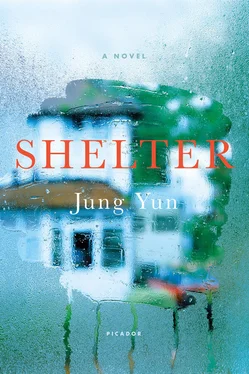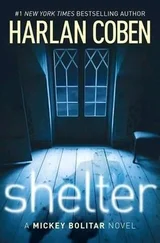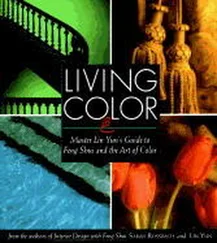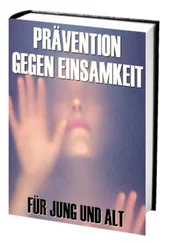“This is a big master bedroom,” Gertie says. “It’s not common for a house this age.”
“I think it used to be two rooms once.”
“But your parents sleep in twin beds. If they do decide to sell, you might want to consider moving these out and getting a cheap king-size one instead.”
“Why?”
“It’s just a generational thing. Younger buyers have to imagine themselves actually living here. They’re not going to be able to with these.”
The matching twin beds are made of dark black wood, each with a four-poster frame. Gertie runs her hand down the length of a post, leading Kyung’s eyes to a cluster of scratches near the mattress before she moves on to the adjoining bathroom.
“Any idea when the plumbing was last updated?” Her voice echoes off the cavernous tile walls.
The information is right there on his sheet of paper, but Kyung can’t read it out loud. He’s petrified, shaking as if the temperature has just plummeted. He sees the room as it was that day, with Marina tied to one bed and Mae on the other. He sees their hands gripping the posts, their fingernails turning white and digging into the wood, clawing at it like animals when Nat Perry climbs on top of them. He flinches at the thought of each slap and punch, at the look on Mae’s face as Perry presses his thumbs into her throat. His piece of paper drops to the floor, but he leaves his empty hand extended.
“Plumbing updates?” Gertie asks, popping her head out the bathroom door.
Kyung sits down on the rug and covers his eyes.
“What’s wrong? Did you hurt yourself?”
He shakes his head.
“Are you sick?” She kneels down beside him. “Do you need a doctor?”
When he doesn’t respond, Gertie opens her purse and rummages through the compartments. “I’m calling 911.”
“No, don’t.”
“Then tell me what’s going on.”
He needs to pull himself together. He has to. But when his eyes are open, blurry with tears, he sees the room. And when his eyes are closed, he sees what happened here. All he wants to do is cut them out.
“Please say something. Tell me what’s happening.”
“Jesus,” he shouts. “Don’t you ever read the papers?”
“What?”
“My parents were attacked here. My mother was — raped here.”
Gertie blinks as she looks around the room. Then she folds her arms over her chest as if she feels the same sudden cold that he does. “Didn’t someone die in this house?”
He nods.
“I heard about a home invasion in this area. I had no idea—”
“It was here.” He punches the bed frame. “Right here.”
He punches it again, harder this time, hearing the strong, sturdy sound of bone against wood. The pain travels up his arm, spreading deep into his shoulder, and he welcomes it, the complete inability to feel anything else. Gertie tries to pull him back, but not before he lands three more blows that crack the thick black veneer.
“Let’s go,” Gertie pleads. “Let’s go now.”
She helps him up and leads him to the kitchen, where he collapses in a chair, too stunned to speak or move. Kyung has never hit anything before — not an object, not a person — and he’s horrified for acting this way, for giving in to the impulse and liking the result. He wishes that Gertie would leave now, but it’s obvious she doesn’t intend to just yet. Although his back is to her, he can tell what she’s doing. Running the faucet, opening the cabinets, cracking ice from a tray into the sink.
She returns with a plastic bag wrapped in a towel. “Here. This might help.”
Two of Kyung’s knuckles are dark red. The one in the middle has already started to swell, rising high above the skin like a knot in a tree. The ice pack stings when she lays it over his hand, but he leaves it there, the pulsing blood fighting the numbing cold.
“Thank you,” he says hoarsely.
He looks up at her, and she does her best to smile, but her face is the color of chalk.
“I’m so sorry,” he says, and suddenly he’s crying again.
“Why? What do you have to be sorry about?”
“For scaring you.”
He’s never cared much for Gertie, but he realizes he should be grateful for her presence now. If not for her, he’d still be sitting on the floor, punching the bed frame until his bones turned to dust.
“Oh, you can’t scare me,” she says unconvincingly. “I was just worried. Now, why don’t we have some tea? That always helps me relax.”
Gertie puts a kettle of water on the stove. She comes back with two cups and saucers and a sampler basket still wrapped in cellophane and Christmas-colored ribbon. She slices through the packaging with her nails and rifles through the contents.
“Calming Chamomile,” she reads aloud. “Revitalizing Ginger…” She lists off the names on every envelope, as if she doesn’t know what else to say. “Maybe we need something stronger. How about Earl Grey?”
He doesn’t like tea, but he nods anyway, wiping his face on his sleeve.
“So that day when I met you and Gillian at your house, when your mother was walking around without any clothes on — that was the day, wasn’t it?”
“Yes.”
“I see.” She scratches at a small chip on the edge of her saucer. “I was so booked up with appointments that week. I heard about what happened on the radio, but I didn’t really pay attention, I guess.”
“Why would you? Who wants to think about something like that?”
“I know, but a woman walking around naked in broad daylight … I should have made the connection.”
“It’s better you didn’t.”
The teakettle sings its alarm, and Gertie gets up to retrieve it. When she returns to the table, she opens two envelopes and dunks the bags with her fingertips until the water turns almost black. As he reaches for his cup, she waves him off.
“Not yet.” She digs through her purse and removes a silver flask, shaking it gently to confirm that there’s something left inside.
Gertie didn’t strike him as the type of person who carried alcohol in her bag, but upon closer inspection, it starts to make sense. No one who looks so pulled together ever really is. She empties the flask into their tea, turning it upside down to shake out the last few drops.
“Times like these…,” she says, then looks away, embarrassed. “I actually don’t know what I was going to say there.”
The bourbon and Earl Grey don’t mix well together, but he drinks the acrid concoction anyway. Gertie adds two sugar cubes to her cup, dissolving them slowly with her spoon.
“So … how are they now?” she asks. “Your parents?”
Something about his expression must answer the question for him because she doesn’t bother to wait for a response.
“It was good that your mother came to you that day. That must give you some relief, at least.”
“Why would it?”
“Well, she trusts you. She came to you for help.”
He doubts that Mae trusts anyone. Not him, not his father, not even the people from her church. It was proximity that led her stumbling into his backyard that day, nothing more.
“I’ll give you the listing,” he says. “How soon can you get it on the market?”
Gertie hesitates. “I don’t think I can sell this house, Kyung. I’m sorry.… I really wish I could, but no one’s going to be able to sell it, not for a while.”
“Because of what happened here?”
She nods. “Maybe if you waited a year. People might start to forget, and the market could be in recovery by then,” she adds optimistically. “For now, though, there’s no way. Someone just died here. Your mother was … assaulted here. Even if you slashed the price, I can’t see buyers getting past that kind of history. Not yet, at least. It’d be easier to get rid of this place by burning it down.”
Читать дальше












